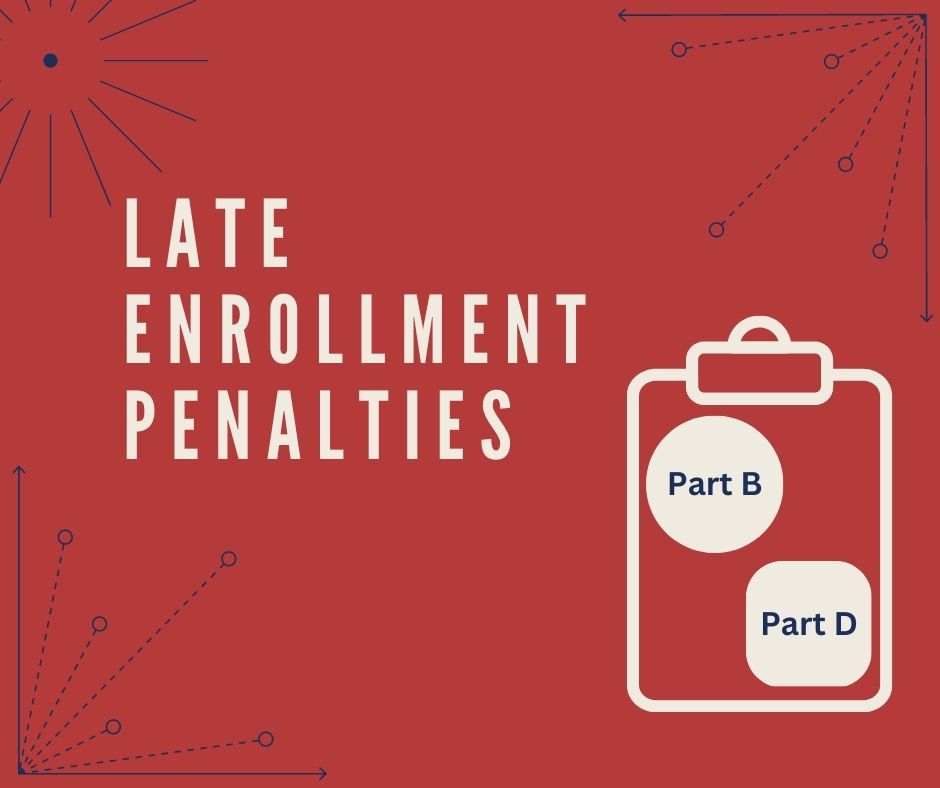When enrolling into Medicare, there are specific enrollment periods you must abide by. Often times if someone misses their IEP (7-month window around 65th) there is a possibility of a Medicare related penalty being assessed. These penalties are associated with Medicare Part B and Medicare Part D. below we will discuss what each of these penalties are, how they are calculated and common ways to avoid the penalties.
Medicare Part B is designed to pay for outpatient surgeries, ambulance rides, durable medical equipment, doctor’s visits, and other outpatient services. The penalty associated with Part B is 10% for every 12 months you went without Part B after you first became eligible for Medicare. The increased percentage is added on top of the standard Part B Premium for each calendar year.
For example, if you went 13 months without Medicare Part B after first becoming eligible, you will pay 110% of the Part B Premium for life. Another example would be an individual that goes eight months without Part B will not incur a Part B penalty. This is because that individual did not go a full 12 months without Medicare Part B.
The most common way to avoid the assessed Part B penalty is to sign up for Medicare Part B when you first become eligible. Another popular way to avoid a Part B penalty is by continuing to receive credible prescription drug coverage from where you or your spouse is currently working. However, there are certain rules that apply to employer-sponsored-coverage.
Medicare Part D is designed to help Medicare beneficiaries obtain affordable drug costs through prescription drug plans. The penalty associated with Part D is 1% for every month that you went without a prescription drug plan for more than 63 days. This percentage is based off the National Base Beneficiary Premium which is subject to change each year.
For example, if you went seven months without Part D coverage after the 63 day grace period, you would be assessed a 7% penalty on your Part D coverage for life. The percentage for this individual is locked, however the amount they pay could go up as the National Base Beneficiary Premium increases.
A common way to avoid a Part D penalty is to sign up for a prescription drug plan or a plan that has prescription drug coverage associated with it when you first become eligible for Medicare. Another way to avoid the Part D penalty is by continuing to receive credible prescription drug coverage from where you or your spouse is currently working. However, there are certain rules that apply to employer-sponsored-coverage. Prescription savings programs, like GoodRX, are not considered credible coverage by Medicare.
With all the misinformation about penalties out there, it is important to assess your individual situation and ensure your current healthcare coverage is within the standard for Medicare. the best way to do this is to talk with a licensed professional to get advice on your specific situation.



